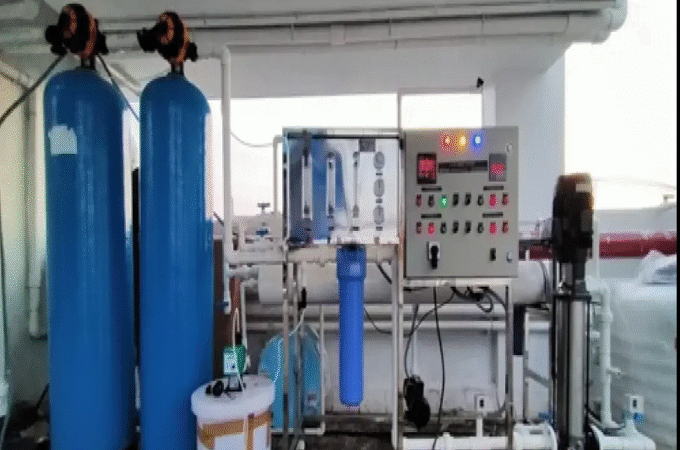
The Future of Renewable Energies: Trends and Innovations to Watch
Renewable energy sources are playing a pivotal role in shaping the future of energy generation. With advancements in technology and a growing focus on sustainability, various trends and innovations are emerging in the renewable energy sector.
In this blog, we will explore what renewable energies are, their importance in helping the planet, and delve into specific types of renewable energies.
We’ll also explore the innovations to watch, with a specific focus on solar panels, underfloor heating and cooling, heat pumps, and EV car chargers. We will also delve into the benefits of each of these technologies, highlighting their positive impact on both the planet and your wallet.
We will also highlight the benefits of each technology, emphasizing their positive impact on both the planet and your wallet.
What are Renewable Energies?
Renewable energies are energy sources that are naturally replenished and do not deplete over time. Unlike fossil fuels, which are finite and contribute to environmental pollution, renewable energies harness natural resources such as sunlight, wind, water, and geothermal heat.
They are considered sustainable and have a significantly lower environmental impact. Renewable energy technologies convert these abundant resources into usable forms of energy, such as electricity and heat.
How will Using Renewable Energies Help the Planet?
Using renewable energies offers numerous benefits for the planet, including:
Reduced Carbon Emissions: Renewable energies produce little to no greenhouse gas emissions during operation, minimizing their contribution to climate change. By transitioning away from fossil fuel-based energy sources, we can significantly reduce carbon dioxide and other harmful pollutants in the atmosphere.
Energy Independence: Renewable energies provide an opportunity for countries to become less reliant on imported fossil fuels. By harnessing local resources, nations can enhance their energy security and reduce dependence on volatile international markets.
Sustainable Resource Utilization: Renewable energies tap into sources that are naturally replenished, ensuring their availability for future generations. This approach promotes sustainability and helps preserve natural ecosystems by minimizing resource depletion.
Job Creation and Economic Growth: The renewable energy sector is a growing industry that creates job opportunities and stimulates economic growth. Investing in renewable energy technologies can drive innovation, attract investment, and support the transition to a low-carbon economy.
Types of Renewable Energies:
Solar Energy: Solar energy utilizes the sun’s radiation to generate electricity through solar panels or capture heat through solar thermal systems. It is a versatile and widely accessible renewable energy source with applications ranging from residential to commercial and utility-scale installations.
Wind Energy: Wind energy harnesses the power of the wind to generate electricity using wind turbines. As the wind rotates the turbine blades, a generator converts the kinetic energy into electrical energy. Wind farms, both onshore and offshore, are becoming increasingly common.
Hydro power: Hydro power utilizes the force of flowing or falling water to generate electricity. It is one of the oldest and most widely used forms of renewable energy. Large-scale hydro power plants, as well as small-scale micro-hydro power systems, contribute to electricity generation.
Geothermal Energy: Geothermal energy taps into heat stored beneath the Earth’s surface. It involves extracting heat from geothermal reservoirs to generate electricity or provide heating and cooling for buildings. Geothermal power plants and geothermal heat pumps are prominent applications.
Biomass Energy: Biomass energy utilizes organic materials, such as wood, agricultural residues, and dedicated energy crops, to produce heat, electricity, or biofuels. Biomass can be burned directly or converted into a gaseous or liquid fuel for various applications.
Renewable energy sources are playing a pivotal role in shaping the future of energy generation. With advancements in technology and a growing focus on sustainability, various trends and innovations are emerging in the renewable energy sector.
Solar Panels: Harnessing the Power of the Sun
Solar panels continue to be at the forefront of the renewable energy revolution. These photovoltaic systems capture sunlight and convert it into electricity. The future of solar panels is characterized by increased efficiency, improved aesthetics, and enhanced integration options. Advancements such as bifacial panels, flexible solar cells, and solar roof tiles are making solar panels more accessible and visually appealing. The benefits of solar panels include reduced carbon footprint, energy independence, long-term cost savings, and potential government incentives.
Underfloor Heating and Cooling: Energy-Efficient Comfort
Underfloor heating and cooling systems are gaining popularity as an energy-efficient solution for maintaining optimal indoor temperatures. These systems utilize renewable energy sources, such as heat pumps or solar thermal energy, to warm or cool the floor surface. By circulating heated or cooled water through pipes beneath the floor, these systems provide efficient and comfortable heating and cooling throughout the year. The benefits of underfloor heating and cooling include energy efficiency, improved indoor air quality, enhanced comfort, and reduced environmental impact compared to traditional HVAC systems.
Heat Pumps: Efficient Heating and Cooling for All Seasons
Heat pumps are versatile devices that can provide both heating and cooling by extracting heat from the air, ground, or water sources. As renewable energy-driven systems, heat pumps offer significant energy savings compared to traditional heating and cooling methods. With advancements in technology, heat pumps are becoming more efficient, quieter, and environmentally friendly. They are an excellent alternative to fossil fuel-based heating systems and contribute to reducing greenhouse gas emissions. Benefits of heat pumps include energy efficiency, lower operational costs, reduced carbon emissions, and year-round comfort.
EV Car Chargers: Powering Sustainable Transportation
Electric vehicles (EVs) are becoming increasingly popular as a clean and efficient mode of transportation. To support the growth of EVs, an extensive charging infrastructure is required. EV car chargers, including home charging stations and public charging networks, are vital components of this infrastructure. The future of homeEV Car chargers involves faster charging speeds, smart charging capabilities, and integration with renewable energy sources. By using renewable energy to charge EVs, we can significantly reduce emissions and dependence on fossil fuels. The benefits of EV car chargers include reduced emissions, lower fuel costs, energy grid optimization, and increased driving range. – Looking for the best Home EV Car Chargers Marbella has to offer? Look no further the Sparkman.
The future of renewable energies is bright, with exciting trends and innovations transforming the way we generate and consume energy. Solar panels, underfloor heating and cooling, heat pumps, and EV car chargers are at the forefront of this revolution.
Embracing these technologies offers numerous benefits, including environmental sustainability, energy independence, long-term cost savings, and a significant contribution to combating climate change. By investing in renewable energy solutions, we not only save the planet but also save money in the long run. Together, let’s build a sustainable future powered by renewable energies.





